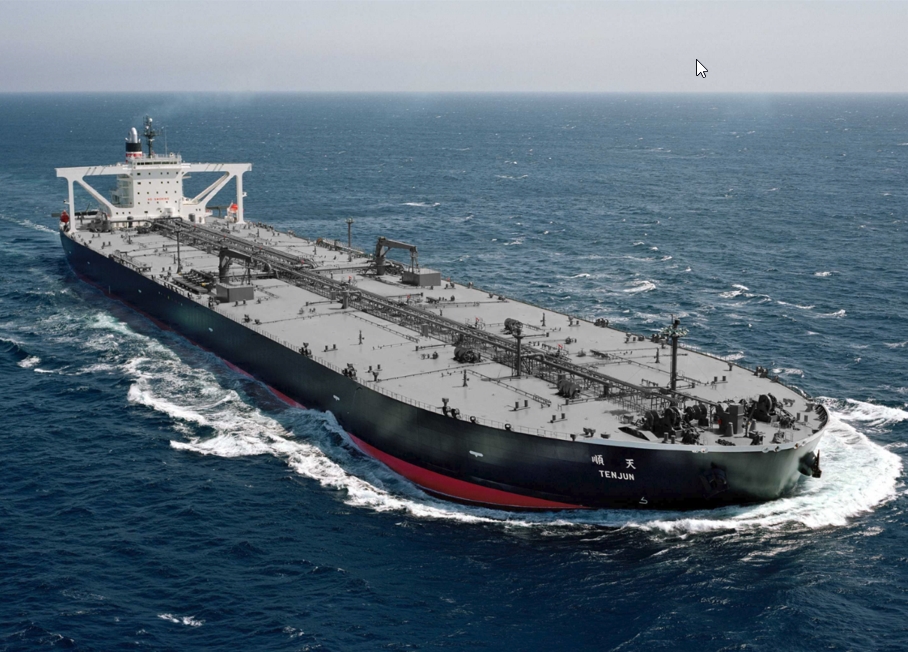Compiling Sufficient Record of Safe Navigation to Facilitate Decarbonization of Marine Transportation
On May 2, Nippon Yusen Kabushiki Kaisha (NYK) began a long-term biofuel* test run on its very large crude oil tanker (VLCC) Tenjun. The vessel received an initial supply of biofuel in Singapore and will continue to use biofuel for approximately three months to comprehensively verify the safe and stable procurement of biofuel for long-term use.
NYK has conducted many short- and long-term safety trials of biofuel use on bulk carriers, car carriers, and liquefied petroleum gas (LPG) carriers, but this is the first time an NYK-operated VLCC has engaged in a long-term biofuel trial.
Biofuels are made from organic resources (biomass) of biological origin, such as agricultural residues and waste cooking oil, and are considered to have virtually zero carbon dioxide (CO₂) emissions when combusted. Since they can be used in heavy-oil-powered ship engines, which are common on large merchant ships, biofuels are considered a key means of reducing greenhouse gas (GHG) emissions in the transition period from heavy oil to zero-emission fuels.
Vessel Particulars
- Length : 330.00 meters
- Width : 60.00 meters
- Gross tonnage: 159,927 tons
- Deadweight tonnage: 302,108 tons
- Year built: 2008
- Shipbuilder: IHI Marine United Shipbuilding Corporation (Kure City, Hiroshima Prefecture)

